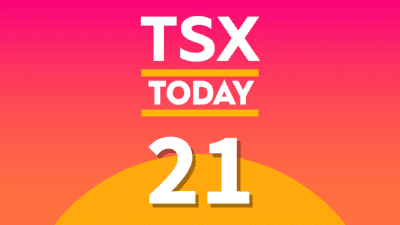Canada’s flagship savings programs — the Tax-Free Savings Account (TFSA) and the Registered Retirement Savings Plan (RRSP) — are both designed to offer tax benefits to savers across the country. The best strategy is to maximize the amount of money saved in both programs, but that’s simply not practical for most people.
With the rising cost of living and stagnant incomes across the country, setting aside thousands of dollars every year for decades may not be feasible. That means new investors, particularly young savers who’re just getting their careers off the ground, may have to pick between the two savings schemes.
With that in mind, here are two questions I think every young investor should ask themselves before making this critical choice and why I (an investor in my late 20s) prefer the TFSA.
Would you rather pay taxes today or later?
Perhaps the biggest difference between the two savings programs is the timing of taxation. Contributions to an RRSP are tax deductible, which means you can deduct the amount from your annual income to lower your tax burden right away.
TFSA contributions, meanwhile, are not tax deductible, but you avoid taxes on the growth of the investments and dividends or interest earned from them later.
As a younger saver, you’re probably just getting started with your career, which means you’re earning less than you hope to in the future. That means the tax deduction is less valuable to you than it is for an experienced professional with a six- or seven-figure salary.
Also, since you’ve started saving early, the power of compounding will help your investments grow much larger, which means it’s more important to mitigate the tax effects on your capital gains later than your income today.
Are you saving for something other than retirement?
When you withdraw from an RRSP, the amount is added to your regular income for that tax year. However, withdrawals from the TFSA are more flexible and don’t add to your tax burden when you need the cash.
This makes the TFSA ideal for major expenses such as buying your first home, paying for a new car, or getting married. The flexibility of withdrawals is a key reason why the TFSA is more ideal for younger savers.
My choice
I’m in my late 20s with a mediocre income. As a potential homebuyer, I need access to cash that can be quickly deployed if or when I find a reasonably priced home in Toronto.
Also, if you’ve read any of my previous articles, you know that I prefer to invest in high-growth technology stocks that can rapidly expand my wealth in a few decades. With that in mind, it’s clearly better for me to invest in the TFSA before making any RRSP contributions.
Foolish takeaway
Younger savers with lower incomes, more time for compounding wealth, and financial goals beyond retirement should probably pick the TFSA over the RRSP. However, the best strategy for any saver, regardless of age, is to maximize contributions to both programs.










